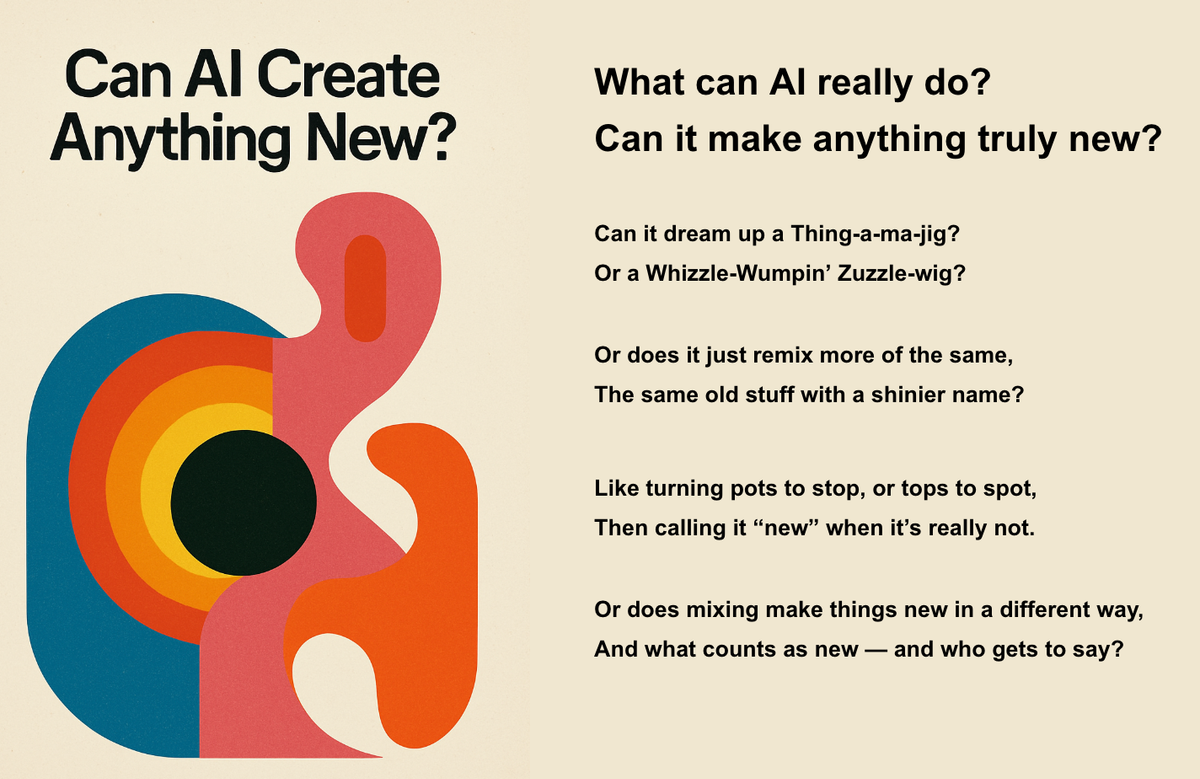Can AI Create Anything New?

By J. Owen Matson, Ph.D
AI has been celebrated as a generator of the new, though what is usually meant by that is novelty at scale, novelty as recombination of existing material into forms that appear fresh for a moment and then resolve back into recognition, like when the system spits out something uncanny for half a second, like a half-remembered joke told at the wrong speed so you laugh before realizing you already knew the punchline—and the effect is convincing enough that people are now prepared to call this creativity, which is the sort of thing that makes philosophers feel both validated (since it proves people actually care about the new) and despairing (since what they care about is novelty dressed up like rupture).
Novelty shuffles what’s already on the table; the new, when it arrives, changes what counts as a table in the first place.
Which is why it helps to bring in Alain Badiou, a French philosopher who has spent decades insisting that philosophy still has something to say about truth, and for him the whole question of the new is absolutely central. His claim—wild on first encounter but surprisingly consistent once it sinks in—is that being itself is structured like mathematics, a kind of endless counting of what exists, and that the new only appears when something breaks through that the count could not include. That eruption is what he calls the Event, and the Event only endures when someone decides to carry it forward, an act he calls fidelity.
And if that feels too abstract, think of a band playing a tight set until someone slams a chord that wasn’t in the chart—raw enough to derail the song, like a drunk saxophonist wandering in from the wrong gig—and the question becomes whether the others follow it into something unforeseen or pull back to the groove; if they follow, that is fidelity, and the new is not the chord itself but the sequence that grows from it.
All of which makes AI an almost too-perfect test case for Badiou—and Badiou an unexpectedly useful frame for AI—because if mathematics is the ground of being, and AI is nothing if not a machinery of mathematics, what might be called a technology of the same at industrial scale, then by Badiou’s measure it should belong entirely to the situation, incapable of producing the new.
And yet I’m wondering if a dialogic back-and-forth with such a system can generate a kind of excess, something that emerges from the AI-human relation that neither side contained, which leads—dangerously, maybe laughably—to the suspicion that fidelity might be demanded to what surfaces in between, fidelity not to the machine itself (that would be absurd) but to the flicker of rupture that appears inside the very mathematics designed to exclude it, as if the situation had swallowed its own impossibility and produced, against its own logic, the very thing it was built to prevent, which is either a category mistake or the beginning of something we do not yet have language for.